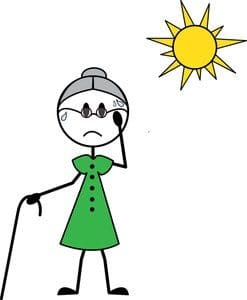
A stroke happens when a blood vessel gets blocked or it ruptures. The brain is not able to get enough blood and oxygen so it is unable to continue to work normally. Eventually, brain cells die.
There are many complications of a stroke and these include:
Each person who suffers from a stroke is different. This makes it hard to know what challenges each person will have and the best way to help them. There is no cut-and-dry way to help them. Instead, you have to work through each complication that they have.
Many struggle with communication. Many are unable to communicate the same way after their stroke. Sometimes, comprehension is the issue while other times a patient may have aphasia.
Difficulty swallowing is also another common complication from a stroke. Not only does this make communication difficult, it can also make it hard to get the nutrition that they need. Special diets may be necessary, though you may also have to help them clear out their mouth.
Many have behavior changes. They may act impulsively, without thinking. Many don’t understand their limitations and try to do more than they are able to.
Many patients struggle with their emotions after a stroke. Because of their limitations and how hard it can be to do things, many patients are angry. Others get anxious and become depressed.
Because there are many complications that happen after a stroke, it is important that caregivers are prepared to help. They may need to help with every day tasks like bathing, eating, and drinking. They also will need to be there as the emotions take over.